I got to thinking about what I like and dislike about interleague play in baseball when I thought of how great it would be to poll some baseball bloggers I know to see what they think. Here are the results. If you like it, please let us know in the comments and we’ll be sure to do this again sometime.
1. Do you like/dislike MLB’s Inter League Play?
Eric Grissom @ PhilliesFlow: Dislike.
David Pinto @ Baseball Musings: No, I don’t like interleague play very much. It was fun for a while, but I’d rather see teams get back to playing the teams they are competing against for the league title.
Bill Jordan @ Baseball Reflections: I like interleague play.
Asher B. Chancey @ Baseball Evolution: I like interleague play a lot.
Jimmy Scott @ Jimmy Scott’s High & Tight: I love it as long as we win.
Ribbie3b of RBI Magazine:: I think Inter League Play is great for Major League Baseball.
2. What do you like/dislike about it?
Eric Grissom @ PhilliesFlow: NL teams, generally constructed without a DH, are forced to play DH games against AL teams that are built to have one. AL teams have figure out what to do with their DH in non-DH games.
The schedule is uneven. For example, last year the Phillies and Mets were in a battle for the NL East. The Mets played the Yankees six times and Seattle three times. The Phillies didn’t play either of those teams. The Mets played the Yankees as many times (six) as they played the Cubs, Brewers, Diamondbacks or Giants.
Given how infrequently the teams see each other, it creates a challenge to reschedule games if they have to be cancelled or postponed due to weather or other circumstances. That can lead to playing games in conditions where they should be stopped.
David Pinto @ Baseball Musings: I like that fans of a particular city get to see different teams every so often. I dislike the assignment of a rival. I rather the natural rivalry come up every few years. Given that teams are competing for a wild card and a division title, they should be playing the same opponents the same number of times.
Bill Jordan @ Baseball Reflections: I like the fact that it creates seldom seen match ups and provides fans a chance to see and relate to teams that they normally would not get a chance to witness in their market. It also allows fans to be able to see some stars live who have played their entire careers in the other league.
Asher B. Chancey @ Baseball Evolution: In reality, while the two separate major leagues developed organically as separate, competing leagues, they are no longer separate in any real sense. They are clearly run under the same organization, Major League Baseball, and there is complete fluidity in terms of dealings between teams, etc. So, I don’t think there has been a very good justification for keeping the leagues from playing each other during the season for several decades now. And one of my favorite things about baseball is seeing different players face off against one another, so this increases the number of players we see go up against each other.
Jimmy Scott @ Jimmy Scott’s High & Tight: I dislike adding an extra West Coast swing to our schedule.
Ribbie3b of RBI Magazine:: I like Inter League play because it gives fans a chance to see players that they wouldn’t normally see and players a chance match up against other opponents that they normally would not compete against. I saw Derek Jeter play for the first time in Philadelphia.
3. In your opinion, should ALL pitchers know how to hit given today’s free agency and how frequently players change teams and leagues?
Eric Grissom @ PhilliesFlow: I think it would be great if all pitchers could hit — but if they have to choose on working on hitting or pitching I hope they spend a whole lot more working on pitching. I especially think that there are a lot of things that AL pitchers might want to focus on before they get to hitting.
David Pinto @ Baseball Musings: Yes.
Bill Jordan @ Baseball Reflections: Hitting doesn’t seem to be that important for pitchers, especially since so many of them are weak with a bat in their hands. If more started getting better, it would be more of a requirement, but since that is not the case, it’s not as pertinent. American League teams are not going to take time out of practice to have pitchers practice hitting just in case they change leagues, so the time isn’t really available for this except in the off season.
Asher B. Chancey @ Baseball Evolution: Should all pitchers know how to hit? I think all pitchers should be expected to hit, given that they should, in theory, have been playing baseball all their lives and are world class athletes. Seeing pitchers hit .083 over the course of a season is inoffensive, I think, but I do think that when a pitcher goes up to the plate, he should be digging in and taking it seriously. One of the pivotal moments for the Phillies in their march to the World Series was one amazing at-bat by Brett Myers against C.C. Sabathia in the playoffs.
Jimmy Scott @ Jimmy Scott’s High & Tight: All pitchers do know how to hit. They just can’t do it. A more relevant question: Shouldn’t all hitters know how to bunt?
Ribbie3b of RBI Magazine:: I think hitting is just an added bonus to having a great pitcher. Pitching and defense wins games. As long as a player can get the job done on the mound I wouldn’t care how bad he is at the plate.
4. Are you in favor of a good hitting pitcher, like Arizona’s Micah Owings or CC Sabathia, being used a pinch hitter or a pinch runner if he’s fast?
Eric Grissom @ PhilliesFlow: I would almost never use those guys to hit or run unless 1) the game was on the line and 2) they were the best hitter or fastest runner I had available. I don’t think I would put them up there in a situation where I was just trying not to burn a bench player.
David Pinto @ Baseball Musings: Yes.
Bill Jordan @ Baseball Reflections: I am in favor of them being used as a pinch hitter, but pinch running is probably too dangerous to have one of a team’s valuable pitchers doing. Since pinch runners are usually counted on to steal a base or run as fast as they can towards the catcher, injury could easily happen and I would imagine most teams don’t want that in their rotation or pen.
Asher B. Chancey @ Baseball Evolution: I have no problem with pitchers hitting, and I have no problem with pitchers running the bases. But when you have a guy who is essentially the lynchpin of your staff – like Sabathia – for whom one freak injury could be the difference between making the playoffs or not (see Chien-Ming Wang), then I think pinch running him unnecessarily increases the odds of tanking your team unnecessarily. On the other hand, with a mediocre starter like Owings, using him as a pinch runner for your catcher with two outs in the ninth is getting value out of a roster spot being taken up by a struggling player, so it is probably a good idea. There is a risk everytime a guy takes the field, and you just have to decide what you are risking before you send a guy in to run the bases like that.
Jimmy Scott @ Jimmy Scott’s High & Tight: Of course. They’re in favor of it too. We all want to compete and we all want to succeed. Rick Ankiel couldn’t pitch, so he became a hitter. Your love for the game can outweigh conventional wisdom.
Ribbie3b of RBI Magazine:: I think Sabathia would be on my roster over Ownings without a doubt.
5. Should the DH remain in the AL? Should it be added to the NL?
Eric Grissom @ PhilliesFlow: Whenever they vote on Crash Davis’s constitutional amendment to ban the designated hitter I hope they let us all know. Count me in.
David Pinto @ Baseball Musings: It should be a strategic decision by the home manager before each game. If he has CC Sabathia pitching and the other team has a poor hitting pitcher, make force the other team to use the pitcher as a hitter.
Bill Jordan @ Baseball Reflections: Yes and No. I enjoy the quirks that the two different leagues have. It creates for interesting line-up changes and the like. Obviously, I have never lived without the DH, and while I am a fan of historical happenings in baseball, I don’t necessarily mind the position, although I don’t think anyone who plays it should ever win the MVP. It also creates an opportunity for older players to stay in the game longer because they are able to just play half of the game. At this point, it has been in the league so long, that it is hard to see why they would take it out.
Asher B. Chancey @ Baseball Evolution: I am agnostic as to whether there should be a DH or not. Frankly, I enjoy seeing guys play into their forties, and if the DH keeps them around a season or two or three longer, so be it. But, I will say this – major league baseball needs to either have a DH or not have a DH, and make it the rule across the board. It is crazy that half the major leagues play by a different set of rules than the other half.
Jimmy Scott @ Jimmy Scott’s High & Tight: I like the disparity. Yes, I know it’s two different sets of rules for two leagues playing the same game, but it does create jobs for guys like Frank Thomas and Edgar Martinez and David Ortiz, guys who are fun to watch. But it’s a fun topic to debate. I think, sometimes, debating an issue is better for the game than the issue itself.
Ribbie3b of RBI Magazine:: I am not exactly sure what would work out the best here. The pros and cons are almost equal to both leagues. I do however think the rule should be the SAME for both leagues.
6. Do you like the insistence on natural rivalries like Boston and Philadelphia, Cubs and White Sox, Mets and Yankees, etc. or do you find them to be forced more than anything?
Eric Grissom @ PhilliesFlow: I think the number of actual rivalries between AL and NL teams is very small. They are largely forced. I particularly feel the Phillies have no natural rivalry with the Los Angeles Angels of Anaheim.
David Pinto @ Baseball Musings: No. See my answer to question # 2 above.
Bill Jordan @ Baseball Reflections: I absolutely love when the Indians and Reds face of, but I wouldn’t want it more than two series every year. I actually wouldn’t mind if inter league play were cut back to just have these match-ups. I don’t think to much is made for these rivalries because at one time, some were real rivalries. Perhaps the Red Sox/Phillies series is over hyped, but same city, or state match-ups seem to have more of a ring to them.
Asher B. Chancey @ Baseball Evolution: I like them. I think they are good for the fans of those cities. I
also think that, on rivalry weekends, the two NL teams that aren’t playing against AL teams should be the Pirates and the Phillies, so that we can have the battle of Pennsylvania while Chicago, Los Angeles, New York, Missouri, Texas, Florida, etc. have their regional battles.
Jimmy Scott @ Jimmy Scott’s High & Tight: They’re “natural” rivalries, so they’re not forced at all. Why do you think a Mets/Yankees game sells out in minutes but a Mets/Mariners game finds 5000 empty seats? Fans want the rivals. Rivalries make the game.
Ribbie3b of RBI Magazine:: I do think they are forced. The energy level is never as high as expected.
7. In your opinion, should interleague play be longer or shorter? Why?
Eric Grissom @ PhilliesFlow: I’d go with eliminated, but shorter would be progress. Maybe even eliminating it for virtually all teams but allowing a very small number of series like a three-game set between the Mets and Yankees.
David Pinto @ Baseball Musings: It should just be different.
Bill Jordan @ Baseball Reflections: As I just stated, I wouldn’t mind if it were shorter. If they chose one or two teams that would play each other every year. Or if they had one natural rivalry series and then another that was a team that was a World Series rematch from years past. For instance…I wouldn’t mind seeing the Indians face the Reds, Giants, Braves or Marlins, because there is a history there (although the Giants series was at the Polo Grounds). On the other hand, I don’t have too much interest in seeing them play the Padres or Diamandbacks.
Asher B. Chancey @ Baseball Evolution: Longer. See answer to Question #9.
Jimmy Scott @ Jimmy Scott’s High & Tight: It should not be longer, definitely not. But I do think it shouldn’t be broken up into two periods, 10 days in May (or whatever it is) and another 10 in June. It held more cache in the beginning for fans when you knew you were playing teams from the other league for the next 2-3 weeks. It made it more special. Now, aside from the natural rivalries, games against teams from the other league are just like every other game. And I don’t think that was the point of interleague play at the outset.
Ribbie3b of RBI Magazine:: I think the MLB has done a great job concerning the duration. Inter League play doesn’t seem to really drag out.
8. What teams would you like to see play each other more often? Personally, I’d like to see the Yankees play the Dodgers more (especially with Torre as the Dodger’s skipper).
Eric Grissom @ PhilliesFlow: I do dislike interleague play, but one thing I would like to see on the schedule if there is any interleague play at all would be a three-game set between the two teams that faced each other in the World Series in the previous season.
David Pinto @ Baseball Musings: None. I think it should be spread around evenly. Set two divisions against each other, and every team in one division plays every team in the other division once.
Bill Jordan @ Baseball Reflections: When there are nitch rivalries like that, perhaps they should play more, but when there is nothing obvious, I don’t see why there would be a reason to do so.
Asher B. Chancey @ Baseball Evolution: I’ll assume you mean in the context of interleague play. I’d like to see teams from cities matched up against teams from their former cities. For example – the Athletics vs. the Phillies; the Orioles vs. the Cardinals; the Braves vs. the Red Sox; the Dodgers/Giants vs. the Yankees; the Brewers vs. the Mariners; the Twins/Rangers vs. the Nationals.
Jimmy Scott @ Jimmy Scott’s High & Tight: Yes, there are more natural rivalries than geographic. There are historic rivalries, Yankees vs. Dodgers being a great example. Mets vs. Red Sox is another that I’d like every year. The problem is there aren’t that many national rivalries that interest a national audience. Blue Jays vs. Phillies could be good, because of ’93, but the Blue Jays haven’t been good since ’93. Tough one.
Ribbie3b of RBI Magazine:: Phillies and Rays in the future! Yankees and Dodgers would also make for a good ballgame more often.
9. If you had a say in the matter, what changes would you make in interleague play?
Eric Grissom @ PhilliesFlow: Dramatically reduce the number of games. Try to play them all in the same week of the schedule.
David Pinto @ Baseball Musings: See the above answer.
Bill Jordan @ Baseball Reflections: The only changes would be the ones I stated above. I don’t really have a problem with the system as it is today. I think there are some other things baseball can work on before they focus on fixing interleague play.
Asher B. Chancey @ Baseball Evolution: I’ve thought a bit about this, and I think interleague should be extended throughout the season, and here’s why: the reason we have unbalanced leagues is because you have to have an even number of teams in each league or else one team would always be idle. I say we should go to two 15 team leagues. Each series, you have seven NL teams against seven NL teams, seven AL teams against seven AL teams, and then the last NL team and the last AL team play each other, with all the teams rotating through that spot throughout the season. That way, NL Central teams don’t have to beat five other teams to win the division, and the AL West won’t be a giveaway with one less team to beat.
Jimmy Scott @ Jimmy Scott’s High & Tight: Like I said, don’t break it up. Start it with a natural rivalry/3-game series, play the other interleague games, and then finish it with a final natural rivalry/3-game series. The only issue, I believe, is the mathematics of each team playing one in another league due to there being more teams in the NL than the AL, so I’m not sure if it can be played out in the way I just laid out or not. I left my abacas in my locker.
Ribbie3b of RBI Magazine:: If it isn’t broken don’t fix it. Like I said before, I think the MLB has the duration nailed down perfectly and the fans seem to enjoy it.
10. This is not exactly a strict regular season interleague play question, but here it goes anyway. Do you think that the All-Star game should decide who gets home field advantage in the World Series? Why?
Eric Grissom @ PhilliesFlow: No. Cause it’s ridiculous that teams play for about four hours 162 different times and that the team that gets the critical advantage in the World Series is not based on the results of those games but on the results of an exhibition game that otherwise doesn’t count. The team with the best record in the regular season should have home field advantage in the World Series. The current system doesn’t just add value to the result of the All-Star game, it also diminishes the value of the regular season.
David Pinto @ Baseball Musings: No. It’s an exhibition. If you are going to assign home field (rather than the old system of allowing it to rotate) use a team’s record, or at least their record.
Bill Jordan @ Baseball Reflections: In a game with some great innovations, this is the worst rule that has ever been thought of. Baseball has never set home field advantage in the World Series like it should be set: by the team with the best record. If they want to make the All Star game count, they could set something like a $25 thousand award to each player. That’s just an arbitrary number, but you get the idea. The team who wins the All Star game really has no bearing on which team playing in the World Series is better and since some teams are already eliminated from playoff thoughts by that time, it’s hard to see why they would be playing hard for something that they have no chance of playing in.
Asher B. Chancey @ Baseball Evolution: Absolutely not. It is simply one of the dumbest rules in sports. The whole justification for the rule – giving the All Star game some meaning, and justifying playing extra innings if need be – is absurd; major league players don’t need incentive to compete in the All Star game. Further, what on earth does one thing have to do with the other? This was a rare year in which the players that ended up in the World
Series actually decided the outcome in the All Star game – Brad Lidge lost the game, Scott Kazmir won it. But for the most part, why should the teams that make it to the World Series have their fate decided by a 25 man roster of players who aren’t on their team? I don’t quite get why the ol’ “Team with the best record gets home field advantage” rule isn’t good enough for Major League Baseball.
Jimmy Scott @ Jimmy Scott’s High & Tight: No, All-Star game should not decide. I think the league that wins the most games in interleague play should have home field advantage. It’s harder to market that vs. the All-Star game, but it makes more sense.
Ribbie3b of RBI Magazine: No. I would like to see the team with the best overall record acquire home field advantage in the World Series. A team should always determine it’s own destiny. Otherwise, why not just flip a coin before Game 1?
Now that you’ve heard from them, what do you think?


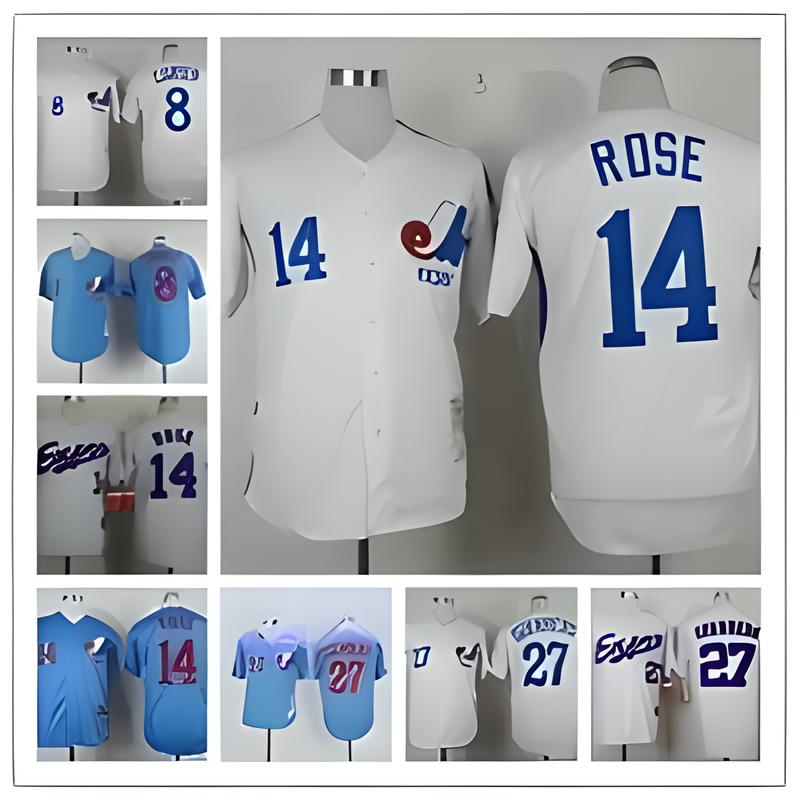

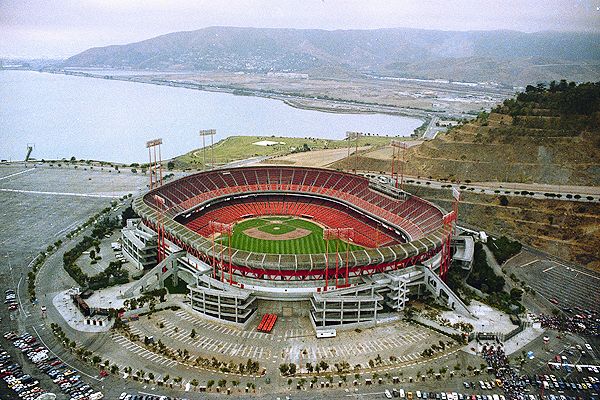
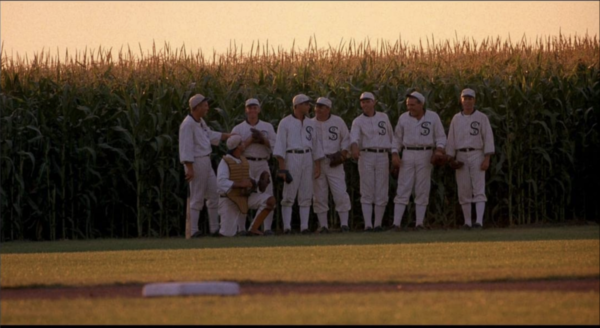
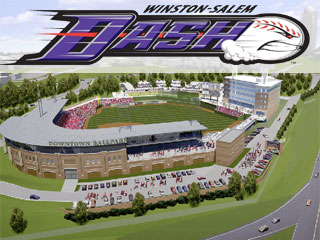
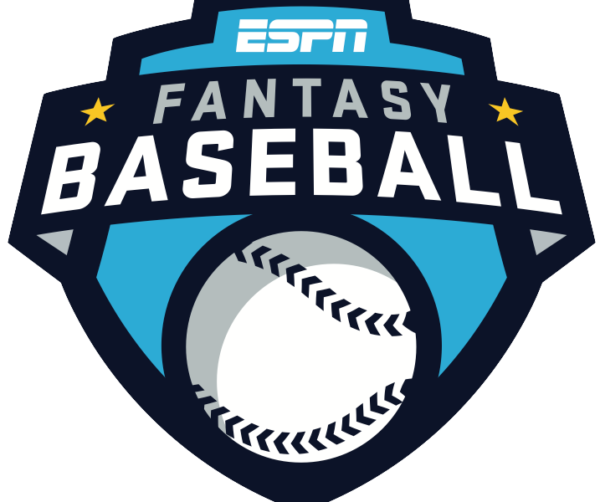
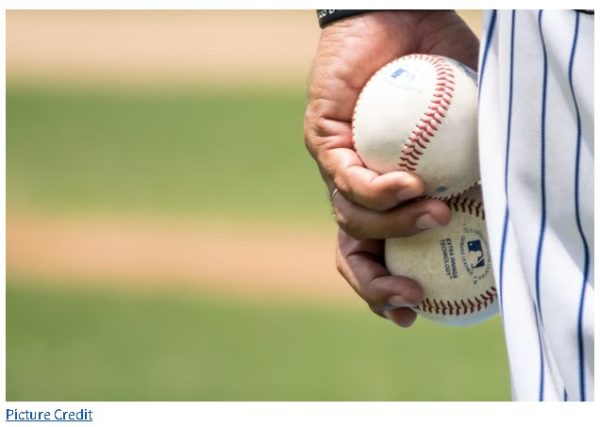
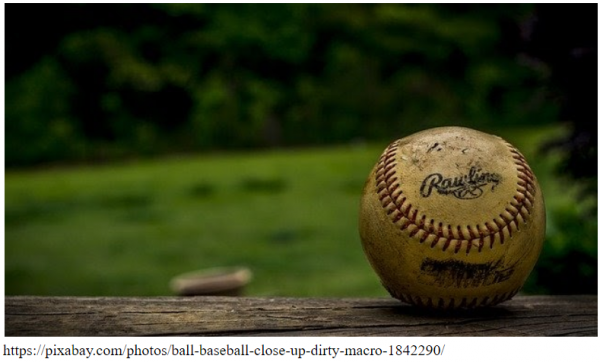

10 Responses
Dammit. I meant to respond to this but never did.
PS: Micah Owings is on the Reds now. He was a PTBNL from the D-Backs.
I personally like it. But only when Chien-Ming Wang doesn’t run the bases and hurt his foot.
Awesome job, Peter. Did I sound fat?
hmm. nice ))
now I’ll stay tuned..